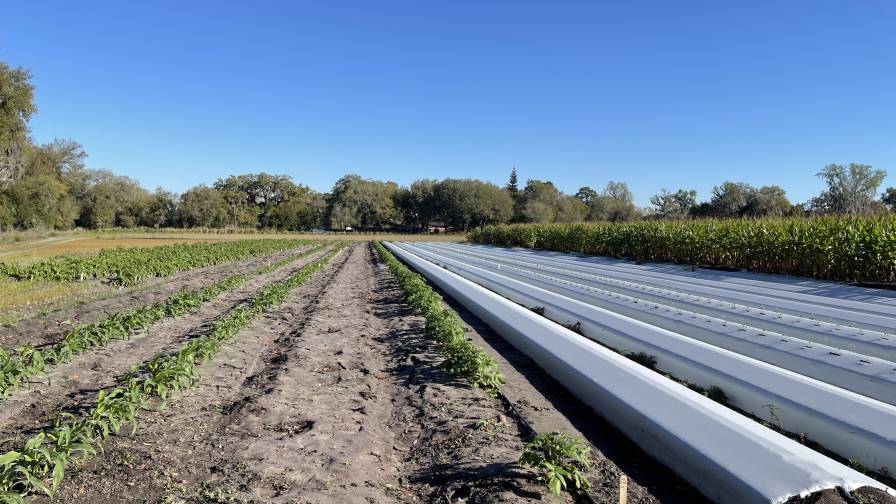Researcher: Spray Water Quality Impacts Herbicide Efficacy
A series of studies at Purdue University has shown that spray water pH and hardness can reduce the effectiveness of herbicides, making it vitally important for crop producers to test water sources.
Hard water or water with pH values as low as 4 or as high as 9 have been shown to lower the efficacy of herbicides, including glyphosate, nicosulfuron and saflufenacil, said Bill Johnson, Purdue Extension weed scientist and professor of botany and plant pathology. An ideal pH value would be 6-7.
“At this point, it seems to be specific to a limited number of compounds,” Johnson said. “It’s amazing how little we know about this topic, considering the number of acres of crops planted in Indiana each year.”
In his research with saflufenacil, Johnson said the herbicide is less soluble at a low pH.
“It’s similar to what happens when you put too much sugar in a glass of tea,” he said. “The granules are then harder for plants to absorb.”
With spray water at a high pH, the molecules in saflufenacil break apart, turning the herbicide into a different compound altogether.
The high mineral content of hard water makes it more difficult for plants to take up the compounds through their tissues because the minerals bind to the herbicide, Johnson said.
Water sources in Indiana tend to have higher iron content, bringing pH levels lower. Further west in the Corn Belt, water sources can have higher pH values because there is more sodium.
Regardless of location, Johnson said crop producers need to test spray water and understand pH and hardness. He said that is especially important if producers are getting water from multiple sources because levels can vary from well to well.
Growers can buy test kits for both pH and hardness, and there are pH adjuster treatments to neutralize spray water. Hard water issues can sometimes be corrected by adding ammonium sulfate.
“Producers also need to read their herbicide labels and understand which water conditions they need to avoid,” Johnson said.
He also warned producers against making complex mixtures of herbicides, insecticides, fungicides and foliar fertilizers because the characteristics of each chemical potentially could change the way the other chemicals perform.
“If farmers are putting together complex mixtures, they really need to pay attention to what each chemical does,” Johnson said. “A unique mixture will have unique characteristics. For example, you might be adding hardness to the mix when you shouldn’t.”
More information on spray water quality, testing and solutions to hardness and high pH values are available in the Purdue Extension publication “The Impact of Water Quality on Pesticide Performance.” The publication, number PPP-86, is available for free download at Purdue Extension’s Education Store at www.the-education-store.com.






